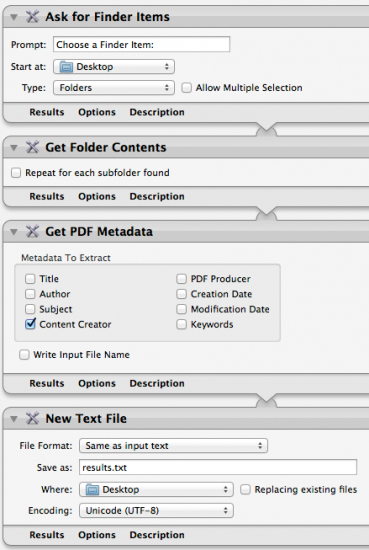Last week, I [wondered aloud](http://2ja.co/ymstb) how I could check creator codes on a folder full of PDFs without checking them one-by-one.
[Zoë Blade](https://twitter.com/zoeblade/status/465787514427822080) wrote in with a Terminal command, but it turns out I could do it in Automator very easily. Here’s the workflow.

Why didn’t I try Automator first? Past experience.
Over the years, I’ve tried doing a dozen things in Automator, only to run into obstacles where it can’t do quite what I need. Often, the breakdown is conditional logic, or the need to transfer a value from one section to the next. ((Having played with other building-block environments like Scratch, I know it’s absolutely possible to do logic and variables in a drag-and-drop way, but I have a feeling Automator isn’t getting updated.))
This is the rare case where Automator does almost exactly what I want. I’ve saved this workflow as an application so I can periodically test batches of files.